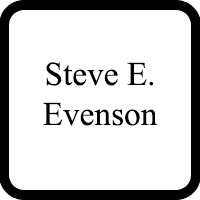 Schurz White Collar Crime Lawyers, Nevada
Schurz White Collar Crime Lawyers, Nevada
Sponsored Law Firm
-
 x
x

Click For More Info:
-
The Law Offices of Richard L. Cooper, P.A.
848 Brickell Avenue Suite 800 Miami, FL 33131» view mapDWI/DUI, Drug Trafficking, Felony Nationally Ranked Top 40 Under 40
With Richard L. Cooper you can expect a trusted confidant who will work diligently to fully understand your case and determine a road map to help you regain control of your life.
800-756-2781
Not enough matches for Schurz White Collar Crime lawyer.
Below are all Schurz lawyers.
Sponsored Lawyers
1-7 of 7 matches
Criminal, DUI-DWI
Steve Evenson is a practicing lawyer in the state of Nevada. Mr. Evenson received his Full ABA from the University of the Pacific McGeorge School of Law in 1992.
(more)



 Richard L. Cooper Miami, FL
Richard L. Cooper Miami, FL AboutMiami Attorney at Law
AboutMiami Attorney at Law ServicesCriminal Defense
ServicesCriminal Defense


